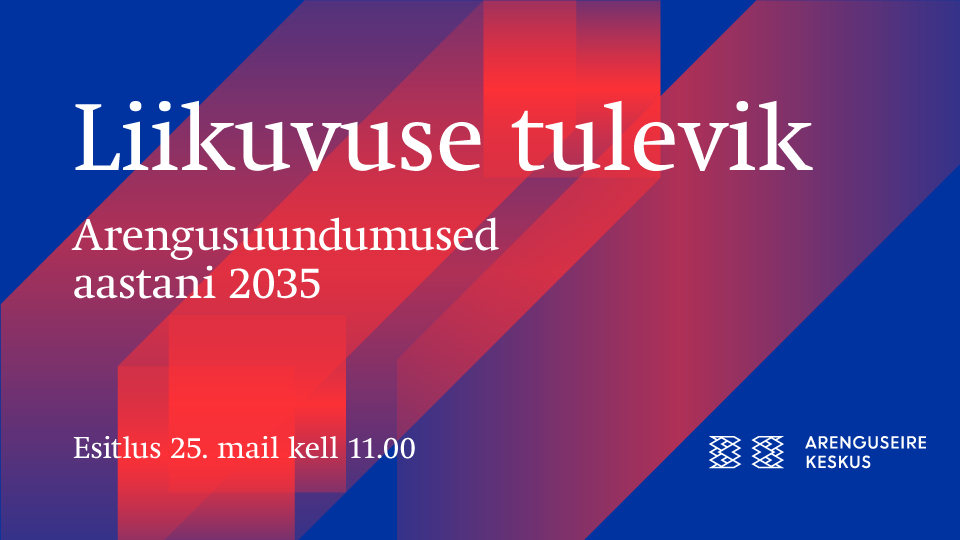Presentation of the report “Future of Mobility. Development Trends up to 2035”
Tomorrow, 25 May, the Foresight Centre is publishing its report “Future of Mobility. Development Trends up to 2035”, which explores the mobility of the Estonian population, and the consequent challenges on the transport system.

“The transport policies and social changes over the last two decades have considerably affected how and why we move and use the transport system,” said the Head of the Foresight Centre Tea Danilov. “The next decades, we are very likely to see even bigger changes, because we will need to reduce the impact of people’s movements and the transport system on the environment.”
Foresight Centre Expert Uku Varblane explained that the impact of the way we move has much wider implications than its usual narrow view as just a transport problem. “People’s movement choices and habits are linked to choices in environmental policy, health care, energy, regional and education policy.”
The report will be presented by the Head of the Foresight Centre Tea Danilov and Expert of the Centre Uku Varblane; the Minister for Economy and Infrastructure Taavi Aas will present his comments on the report.
The report will be presented on 25 May at 11 a.m. in the meeting room of the Foresight Centre (Toompea 1, Tallinn).
The Foresight Centre is a think tank at the Chancellery of the Riigikogu that analyses long-term developments in society and the economy. The Centre conducts research projects to analyse the long-term developments in Estonian society, and to identify new trends and development directions.
Latest news
-
27.06 2025Current low birth rate will lead to up to 1.3 billion euros less tax revenue in the future
In its new short report “The impact of population ageing and low birth rate on long-term state revenue and expenditure”, the Foresight Centre notes that the lower than projected birth rate will reduce government spending on family policy and education, but in the long term, it will mean up to 1.3 billion euros less in tax revenue.

 An independent think tank at the Riigikogu
An independent think tank at the Riigikogu